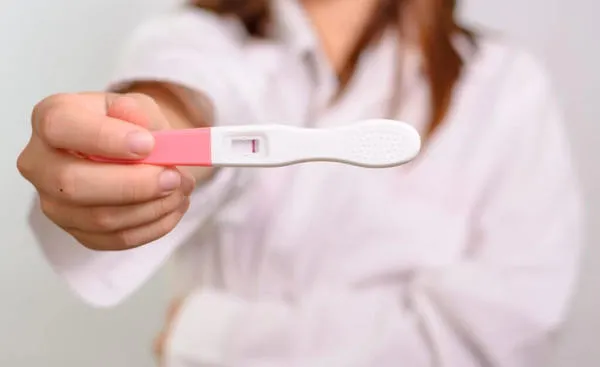- +994 55 217 57 77
- info@aytenbabaxanova.az
- Melhem International Hospital

Endocrine infertility is a general term describing reproductive issues in women caused by ovarian dysfunction. This condition should be evaluated and treated by a qualified endocrinologist, as endocrine factors account for 30-40% of infertility cases in women.
Main symptoms include inability to conceive, menstrual cycle irregularities, anovulatory cycles, galactorrhea (due to hyperprolactinemia), hirsutism, acne, hair loss, obesity, and blood pressure fluctuations.
A qualified endocrinologist performs thorough anamnesis and physical examination: height, weight, presence of obesity, hirsutism, breast development, and secondary sexual characteristics. Gynecologist consultation is included. Hormonal function of ovaries and ovulation is assessed through laboratory tests and follicle ultrasound monitoring. Progesterone and urinary pregnandiol levels confirm ovulation.
Treatment follows a stepwise approach: normalization of endocrine gland function (correction of diabetes, obesity, adrenal or thyroid dysfunction, surgical removal of tumors if needed). Dominant follicle stimulation and ovulation induction follow if necessary. Most cases respond to hormonal therapy, while surgical correction or IVF may be required in complex situations.
Prevention of endocrine infertility should start in childhood: prevent infections, rheumatism, flu, and toxoplasmosis; correct functional disorders in the hypothalamic-pituitary-ovarian axis early.
The most common causes of endocrine infertility include:
Thyroid disorders (hypothyroidism, hyperthyroidism, goiter)
Polycystic ovary syndrome (PCOS)
Hyperprolactinemia (elevated prolactin hormone)
Adrenal and pituitary gland dysfunctions
Obesity and insulin resistance
Stress and chronic fatigue
Yes. With an accurate diagnosis, most cases of endocrine infertility can be successfully treated. Treatment usually includes:
Hormone therapy
Restoring metabolic balance (diet, physical activity)
Medication therapy
Stress management
In some cases, early treatment is crucial to prevent infertility and improve reproductive health.
To diagnose endocrine infertility, the following tests and examinations may be recommended:
Blood hormone tests (TSH, T3, T4, LH, FSH, prolactin, insulin, cortisol, etc.)
Glucose and HbA1c levels
Ultrasound examination of the ovaries and thyroid gland
Immunological tests and, if necessary, genetic analyses
Endocrine infertility is a type of infertility that occurs due to hormonal imbalance alongside the reproductive system. In both women and men, hormonal deficiency or excessive secretion weakens reproductive function and prevents conception.
If you experience long-term difficulty conceiving, irregular menstrual cycles, or hormonal symptoms such as hair loss, excessive hair growth, weight gain, or persistent fatigue, you should consult an endocrinologist without delay.
If you are experiencing symptoms of endocrine infertility, do not delay seeking medical help.
Contact an Endocrinologist or schedule an appointment through the online request form.

Copyright @ 2023 Aytenbabaxanova.az.